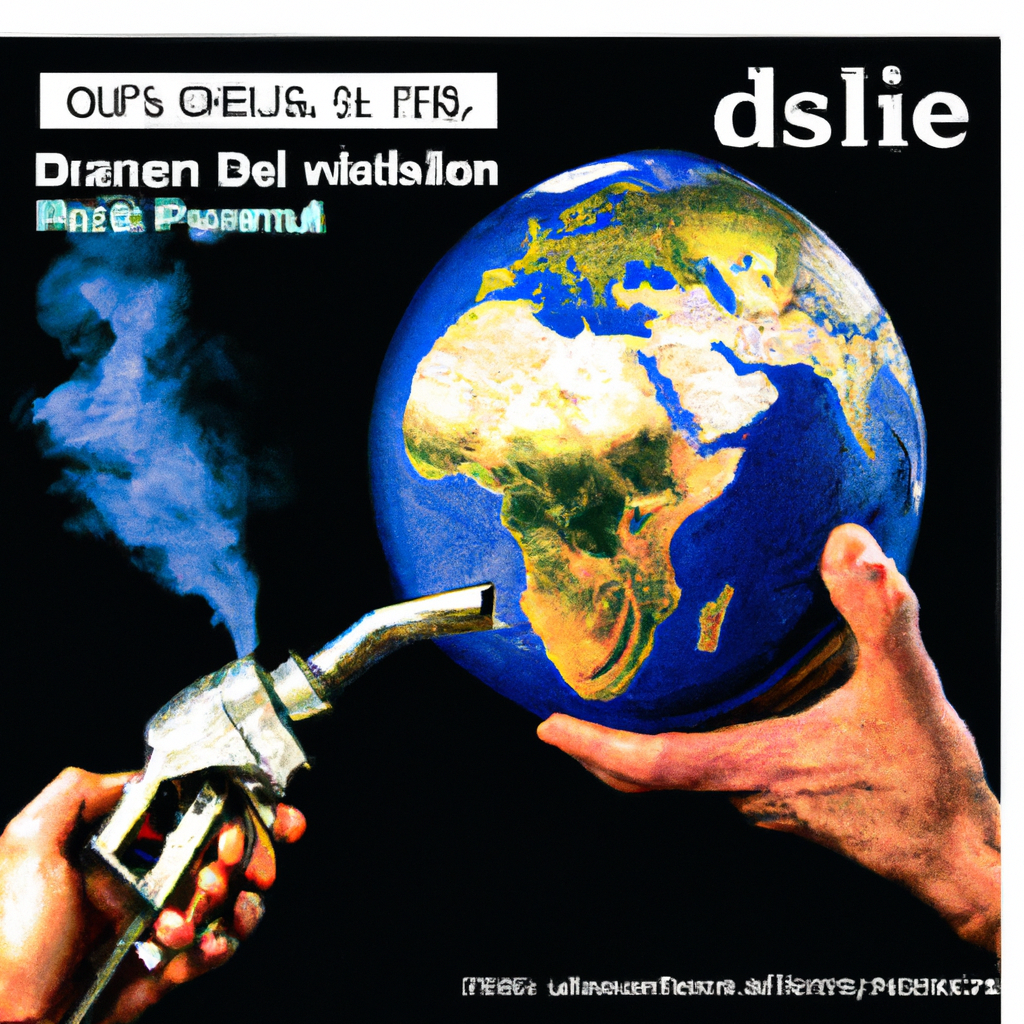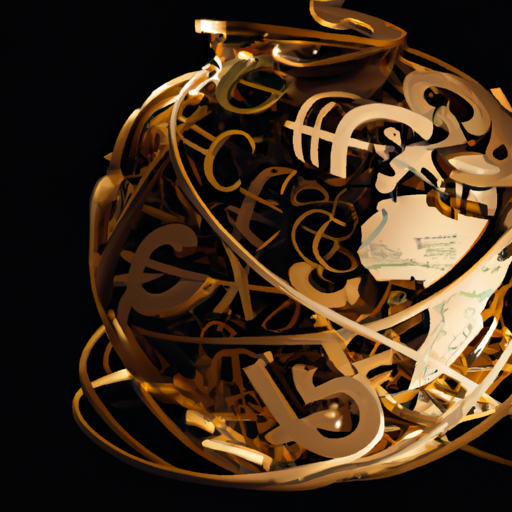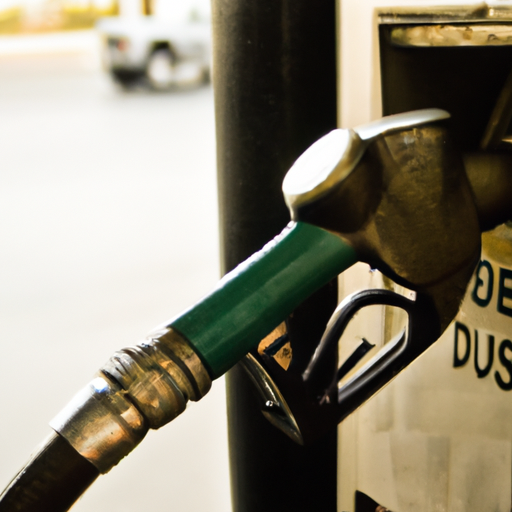International Events Impacting Currency Markets
With the recent surge in diesel prices, it is important to understand the potential impact on currency markets. The rise in prices can be mainly attributed to the actions of two key players, Saudi Arabia and Russia. While these actions may have a significant effect on the Rouble, the impact on other major currencies like the dollar and euro is expected to be minimal.
The consequences of increasing energy costs due to the rise in diesel prices are particularly noteworthy for Russians. As the winter approaches, they may find themselves paying a higher price not only in monetary terms but also in terms of comfort. If it gets cold in Germany, you can be sure it will be even chillier in Russia. These fluctuations in the currency markets highlight the dominant position of the dollar as the ruler of currencies, leaving the Rouble in a precarious position as a mere serf.
It is evident that these international events are of great concern to Vladimir Putin and his advisors. They have considered various strategies to counteract the depreciation of the Rouble. Plan A involved the introduction of a new BRICKS currency backed by gold, aiming to increase the competitiveness of the dollar and euro against the Rouble. Plan B, on the other hand, was more radical and involved backing the Rouble with gold. However, both plans are unlikely to have significant impacts, as they pale in comparison to the scale of global financial markets.
The rising diesel prices and the subsequent impact on currency markets highlight the intricate relationship between energy costs, international events, and financial markets. While the Rouble is expected to weaken due to rising energy costs, major currencies like the dollar and euro are expected to remain mostly unaffected. As individuals, we can only observe these dynamics and be mindful of the potential consequences on our own financial situations.

## Consequences for Russians in Winter
Cold weather in Germany and its effect on Russia
When it’s cold in Germany, Russians feel the chill even more, thanks to the rising diesel prices that have a direct impact on their energy costs. The recent actions by Saudi Arabia and Russia have caused oil and diesel prices to soar, and this has had a particularly adverse effect on the Russian currency, the Rouble. As a direct consequence, Russians are likely to bear the burden of increasing energy costs come winter.
Increased energy costs for Russians
With rising diesel prices, Russians can expect a significant increase in their energy costs. The impact of these price hikes will be more profound due to the vulnerability of the Rouble compared to other major currencies like the dollar and the euro. This means that as the cost of diesel rises, Russians will have to allocate a larger share of their income towards heating their homes and powering their vehicles.
Rouble’s vulnerability compared to other currencies
While the dollar and euro have remained relatively stable in the face of rising diesel prices, the Rouble has suffered. This vulnerability stems from the actions taken by Saudi Arabia and Russia, which have affected the global oil market and put pressure on the Russian currency. As a result, Russians will find themselves at a disadvantage as they grapple with increased energy costs amidst this currency volatility.
The rising diesel prices have significant implications for Russians in the winter months. Cold weather in Germany, coupled with increased energy costs and the vulnerability of the Rouble, paint a challenging picture for the Russian population as they navigate the effects of these changing currency markets.

## Awareness of the Issue by Putin and Advisors
Plan A: Introduction of a new BRICKS currency backed by gold
In light of the escalating diesel prices, it is evident that Russian President Putin and his advisors are well aware of the potential implications for the currency markets. One strategy they considered was the introduction of a new BRICKS currency, backed by gold. This move was aimed at making the dollar and euro more competitive with the Russian ruble. By creating a currency supported by precious metal, they hoped to strengthen the ruble’s position.
Plan B: Backing the ruble with gold
As an even more radical approach, another option Putin and his advisors considered was backing the ruble with gold. This would involve tying the value of the currency to the price of gold, similar to dropping a penny in terms of money. While this may have been a drastic measure, it was proposed as a means of providing stability and strength to the ruble amidst the rising diesel prices.
Both Plan A and Plan B demonstrate the gravity of the situation and the acknowledgment that the currency markets are being directly impacted by the increasing costs of diesel. These measures reflect the government’s determination to counter any potential negative effects and maintain stability in the Russian economy.
Impact of International Events on Gold Prices
As oil and diesel prices continue to rise, driven by actions from Saudi Arabia and Russia, it is important to examine the implications for currency markets. While these price increases are expected to have a weakening effect on the Rouble, the impact on other major currencies like the dollar and euro is likely to be less significant. This means that as energy costs rise, the Russian economy may face challenges, particularly during winter months when heating demands intensify.
Russian leaders, including President Putin, are fully aware of this issue and have considered various plans to mitigate its effects. Plan A involved introducing a new currency, backed by gold, known as BRICKS. This was aimed at increasing the competitiveness of the Rouble against the dollar and euro. However, Plan B, which was even more radical, proposed backing the Rouble directly with gold. Such a move, though, would be far less impactful compared to the worth of traditional currencies.
These international events have a direct impact on not only currency markets but also the determination of gold prices and overall financial markets. As diesel prices rise, there are resulting shifts in financial markets, requiring investors and businesses to adapt to changing conditions. This ongoing situation calls for careful monitoring of currency fluctuations and gold prices, as they can greatly influence global economies and trade.

## Reasons Behind Rising Diesel Prices
Role of Saudi Arabia in rising diesel prices
Saudi Arabia plays a significant role in the rise of diesel prices. As one of the world’s largest oil exporters, any changes in Saudi Arabia’s oil production and pricing policies can heavily impact global diesel prices. Recently, the country has implemented production cuts, leading to a reduction in the global supply of diesel. This reduction in supply has subsequently led to an increase in diesel prices, affecting currency markets.
Role of Russia in rising diesel prices
Similarly, Russia has also contributed to the rising diesel prices. The country, another major oil producer, has joined hands with Saudi Arabia in implementing production cuts. This concerted effort has placed a strain on the global diesel market, causing prices to soar. As a result, currency markets are witnessing the effects of this increase, with certain currencies experiencing a weakening against others.
The impact of rising diesel prices on currency markets cannot be ignored. While the dollar and euro may remain relatively stable, currencies like the Russian Rouble are expected to face the brunt of these price hikes. It is crucial to stay informed about international events that influence currency markets, as they can have far-reaching implications on gold prices and financial markets as well.



